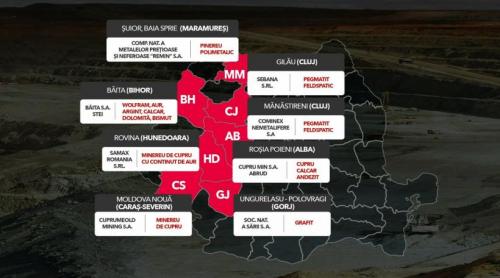
Changing labour patterns in Western Europe are creating new opportunities for Balkan women who are ready to work abroad. A dream for some, it's a nightmare for some of their families.
• By Maja Hrgovic in Zagreb, Rome, Sofia and BucharestAlthough she celebrated her 29th birthday only a week ago, Alina looks as if she is in her forties. Her straggly hair, bitten nails and swollen, constantly blinking eyes do her no favours and give the impression of a haunted person.
"All he needs to do is to make sure the girls are clean, fed and do their homework, but it's still too much for him," she says of her husband. "It's easier to whore around, drink and gamble. With my money."
Ignoring the beautiful view from the sunny terrace of a cafe in Deruta, a quiet Italian town near Perugia, Alina lights another cigarette, recounting the phone conversation she had an hour earlier with her teenage daughters in Romania.
When Alina left her hometown of Gaesti in 2006 to work in Italy as a home help for an elderly wheelchair-bound woman, her husband Cosmin, 37, remained at home to mind the children. But four days ago he disappeared along with all of the family's money, her daughter had informed her.
Alina is part of a growing phenomenon - women from the Balkans, working in the West, who have become the sole breadwinners for their households. It is a reversal of the traditional pattern in which men emigrated to work abroad, leaving their wives at home. Such a change is placing great strain on many families.
CHANGING FACE OF MIGRATION
The UN Department of Economic and Social Affairs, UNDESA, which tracks migration patterns all over the world, says that, since 1990, women emigrants have outnumbered men in nine Balkan countries: Albania, Bosnia and Herzegovina, Bulgaria, Croatia, Kosovo, Macedonia, Montenegro, Romania and Serbia.
UNDESA reports show that, while women make up 49.6 per cent of global migration statistics, in the Balkans, this figure is 54 per cent. This phenomenon is most noticeable in Macedonia and Bulgaria, where women make up 59 per cent of migrants.
According to a 2008 World Bank estimate, of the 7.9 million people who have emigrated from the Balkans , women make up 4.3 million, or 54.4 per cent.
In the past, women from the Balkans usually stayed at home with their children while their husbands worked in the coalmines and steelworks of the West, sending their hard-earned money back home.
When they travelled abroad, women did so mainly to accompany their husbands as they sought work, or to join them later under family reunification policies.
However, the collapse of the Iron Curtain in 1989, technological advances in the workplace and the armed conflicts in the former Yugoslavia in the nineties triggered a process of feminisation in labour migration in the Balkans.
Manual work in factories gave way to new forms of employment in the service sector that required or preferred female workers. As a result, more women are migrating from the Balkans than ever before, and more are becoming the main financial providers for their households.
WESTERN TREND CHANGES THE EAST
The professions traditionally reserved for immigrant women from the Balkans are generally in poorly paid and socially unattractive sectors of the economy for which there are local labour shortages. Specifically, Balkan women usually find work as cleaning ladies, waitresses in cafes and restaurants, hotel chambermaids and carers for the sick and elderly.
According to a study conducted in 2007 by Open Society Romania, out of the almost 255,000 Romanian women working temporarily in Italy, 88 per cent have worked at least once - often illegally - as a home help.
Sociologists note that, while this new trend has presented women from the Balkans with a new source of empowerment, it has taken them away from their families and created new pressures.
Families in which women have become sole breadwinners have undergone a thorough metamorphosis, they say, posing unforeseen challenges to traditional patriarchal Balkan family structures.
"Female migrant breadwinners are the reality for a great proportion of families in the Balkans," Croatian sociologist Ivan Prolic says. "The trend is on the rise, re-configuring traditional families, making changes to patriarchal mentalities and shaking up rural communities," he adds.
Prolic says the trend is so recent that little research has been conducted into it. "Sociologically, it is interesting and should definitely be explored with greater attention," he concludes.
IT'S TOUGH FOR THE 'BADANTE'
Alina does a job that not many Italians are prepared to do, and does so for what they would consider an offensively low salary. All the same, she manages to send 400 euros back to her family every month.
In addition to her salary, Alina has another incentive that she hopes will make her sacrifice worthwhile. The handicapped 77-year-old she is looking after has promised to leave the house to her helper when she passes away. "I'm waiting for her to die," Alina admits matter-of-factly, puffing away at yet another cigarette.
Because of this promise, she copes with the fact that she does not much like her employers, whom she believes to be racist. She notes a report from the newspaper Corriere della Sera last summer about an Italian woman who was arrested after abusing and virtually enslaving her Romanian housekeeper for a year. Threatening to report her as an illegal immigrant, she had forced her to live in the basement.
Meanwhile, immigrants like Alina also have to cope with the scorn of local residents. In Italy, as in the rest of Western Europe, anti-immigrant sentiments have increased since the economic downturn of 2008, according to a report by Rome-based NGO Caritas Migrante.
Italy's rightist government chafes at the EU's open border policy and the fact that, since January 2008, citizens of the newest EU members, Romania and Bulgaria, can more freely move and work anywhere in the EU.
Still, immigration specialist Antonio Ricci says that Italy should be grateful for its more than 2.5 million registered immigrants and approximately 700,000 illegal immigrants.
In an aging society with a very low birth rate, the economy would suffer severely without immigrant labour, especially small and medium sized firms, he says.
Privately-hired carers from Eastern Europe who care for the sick and elderly, cover gaps left by the country's inefficient welfare policy, experts say. For these reasons, home helps were excluded from the toughened anti-immigrant measures imposed last year by the Italian government.
Still, the public's disdain for both men and women who look foreign, be they from Romania, Albania or Morocco, is readily apparent. This animosity can be detected in the way many Italians pronounce the word ‘badante', which refers to foreign women working as carers.
Alina is fed up with it. "Shop assistants in supermarkets always follow me around to see if I'm stealing something, and some people won't return my greeting in the street. It's humiliating and happens a lot," she says. "My friend from Bulgaria, another badante, says I'll get used to it, but I never will," she adds.
NOT JUST ABOUT MONEY
Whilst demand for migrants is created by gaps in the labour market in Western Europe, the poor economies of most Balkan states provide an almost limitless supply of women ready to temporarily leave their families to work abroad.
Surveys in 2006 and 2008 by Gallup Balkan Monitor revealed that deep dissatisfaction with living standards in most Western Balkan countries has been one of the main reasons behind migration trends.
Although financial reasons are the main motivation for working abroad, most female immigrants I interviewed in Italy, Austria, Croatia, Bosnia and Herzegovina, Romania and Bulgaria believe the benefits of migration go beyond money.
Neda Plesa from Boboljusci, in Bosnia, is a loud, witty woman in her late thirties. With an almost constant smile on her face, it's hard to imagine her being sad. Yet she says she suffered from serious depression before she found work abroad.
Like a few hundred other women from Bosnia's northwest, Neda has found a new career in northern Austria. Since 2004, she has worked on a dairy farm outside Linz. "My job is one per cent inspiration and 99 per cent perspiration," she jokes.
But she still sees her job as an escape from a life she likens to prison. "My ex-husband thought a woman shouldn't work and that a man should be provide for the family... typical Bosnian macho stuff," she recalls.
"While he worked in a construction company, I stayed at home, bored and lonely, cooking, eating and watching TV and getting fatter.
"When I asked him for money, I had to explain exactly what I needed it for. It is called economic violence and it eventually destroyed my self-respect," Neda concludes. Thanks to her job in Austria, Neda is now reasonably well-off, divorced and has discovered a passion for backpacking.
Mira Bator, 38, from Kiseljak, in central Bosnia, also says that her migration has not just been about money. She, too, feels a new life working abroad has given her self-respect.
Bator left Bosnia for Zagreb, Croatia, in 2007 to work in her cousin's shoe store as a saleswoman. Her unemployed husband and pre-school son, Adam, joined her last year.
"My parents want me to quit my job to take care of Adam and think my husband should provide for the family," she says. "But I don't have a problem with being the breadwinner. It makes me feel self-confident and proud of myself.
"Being confined within four walls could never make me feel this way," she adds.
A WORLD WITHOUT WOMEN
Westward economic migration has deprived some villages and small towns of almost all their working-age women.
If anyone wants to know what a world without women would look like, they should visit Varshets, a remote town in Bulgaria's Montana district.
Famous for its mineral springs, it is also renowned for the fact that its approximately 5,000 inhabitants are mostly wifeless, jobless husbands and motherless children. The town's women have gone to work in Italy and Spain, sending back the earnings they have made as badante or workers in the catering industry.
Even on hot and sunny summer days, not a single woman is to be seen in the Bor-Cvor snack bar on the main street. The place is packed with men, laughing and chitchatting over simple tables covered with chequered red-and-white covers.
Defying the stereotypes of male-only communities, Varshets looks peaceful, orderly and pleasant. The men hang around in the bar every day, supporting each other while they wait for their wives to come home for vacations.
Peter Dimov, 45, a construction worker with a warm smile, has not seen his wife since last year. He admits he wept when his son recently asked what colour his mother's eyes were, because he couldn't remember.
Peter's readiness to talk about his loneliness and longing in the middle of a pub and in front of other men, contradicts another stereotype about men, as do his friends' compassionate attitudes. They admit to similar experiences.
The men of Varshets have learned to cook and help their daughters get through adolescent crises. Thankfully, their attitude toward this complete reversal of the usual patriarchal family model appears to be healthy.
"I never appreciated what my wife did for the kids and the household until I lost my job and she went to work in Italy," Peter admits.
"Now, raising my boys, I realise how hard it is to be a housewife. Construction work is a piece of cake in comparison with this," he jokes, while others nod approvingly.
ABANDONMENT CAN END IN SUICIDE
While improved living standards represent an obvious benefit for female emigrants, it often comes at a high price.
Just like many Western businesswomen, women migrants from Eastern Europe often suffer from medical conditions, which, according to the American Psychiatric Association, may include depression, difficulties adapting to their new situations, mood swings and despair.
Meanwhile, Romania has experienced a new, horrifying syndrome: suicides by children whose mothers left them behind when they went abroad.
In 2008, according to a study conducted by UNICEF and the Social Alternatives Association in Romania, almost 350,000 Romanian children had at least one parent working abroad, of which around 126,000 were without either parent.
In 2006 and 2007, at least 19 children killed themselves, often - their suicide notes reveal - as a result of acute feelings of parental rejection or abandonment. Several of these suicides occurred in Dambovita county in central Romania, a place that is infamous for the number of parentless children.
In Alina's home town of Gaesti, the side-effects of families torn apart by migration are evident on every corner. The town is populated almost exclusively by children and grandparents who have assumed parental functions since the children's parents migrated westwards to work.
The look of the village explains why people are ready to do anything to leave and seek a better life in Italy, Spain or elsewhere. Makeshift houses are covered with old carpets and even rusty sides of refrigerators for insulation. Packs of skinny dogs and groups of even skinnier kids wander around, playing in muddy puddles and piles of unrecognisable, malodorous waste in the main street.
Adrian is nine and his sister Irina is only seven. They hang around a deserted bus station, playing games on their Nintendos. Their mother went to Spain two years ago and has not come back. She has not called or written, although she sends their grandmother money every month. When asked what they want most in life, they say in unison "iPod".
"I don't miss our mum and I don't want her to come back," Adrian says, his big eyes fixed on the toy in his hand. "Granny says she's left us for good, and has a new boyfriend now. I don't want to meet him."
According to the Romanian National Authority for Child Protection, children like Adrian and Irina face a precarious future.
Their living standards and the pretence of normal lives are only secure as long as their parents keep sending money and their grandparents are alive and well. If this status quo breaks down, they might end up in dismal orphanages and eventually be recruited into prostitution or crime.
Female breadwinners from the Balkans struggle with what is sometimes a no-win situation. The dream of emancipation through participation in the Western labour market can turn into a nightmare, especially for their families.
While the challenge that this trend poses to traditional patriarchy is welcome, the process can also result in children who no longer appreciate the difference between a mother who drops by for a week or two every summer and a new iPod.
This article was produced as part of the Balkan Fellowship for Journalistic Excellence, an initiative of the Robert Bosch Stiftung and ERSTE Foundation, in cooperation with the Balkan Investigative Reporting Network, BIRN.

















